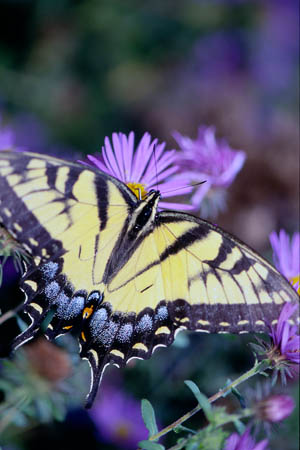|

Lee Passarella
Dvorak and the Crows
Spillville, Iowa
He’s out walking, a Tuesday in June
of 1893. And he believes the field of young corn
across the river, pale green lancets jabbing
at the clouds, would remind the least homesick,
the most dry-eyed émigré of home.
This morning there was birdsong (a tanager
they called it, little red devil of a thing!)
—he swears the first he’s heard since he set sail.
The bells of St. Wenceslaus play a tune
at the hour. Immediately, as if the keyboard
of the church’s little organ were right before him,
he sees the white keys rise from the weight of invisible
fingers and fall silent, while the black keys
dip and soar, crows tilting at clouds.
The field quavers in the haze. A lone
hawk wheels above the corn.
Between the wary half steps the bells take,
he hears pentatones, the black ivories
engraving the keyboard in his mind.
He reads it with his hands, like Braille.
As always, he thinks of black bread, ripe soil,
deep woods. That will become the jumpy first theme
of his Opus 96 Quartet.
He’s a mix of joy and business, rushes home
to his piano, where the tune becomes public property
in the hot afternoon. The neighbors hear it.
His teenage girl, Otilka, hears it also
and approves, in her funny, solemn way,
dances a few turns to it. The room grows
briefly cool, dark wings against the sun.
Too soon, new wife in her twenties,
she’ll be gone, a heart attack. But by then
the music will have stopped. And now,
this sunny Tuesday, he’s happy as a man
who’s just been made a grandfather by his favorite child.

The Bird Watcher Watched, or
A Matter of Perspective
A squadron of grackles
invades the feeder, their starved
eyes like yellow maws,
shocking in those blue-black heads.
They thrash each other in a shower
of seed: kids from the Projects
with their backs to the wall that is August,
their Niagara-at-curbside about to be shut off.
They send sidelong glances
toward the kitchen window where
He stands, Bird Fancier—huge, dark visaged
as a woodcut samurai, as a pagan god.
He casts his harpy’s shadow
across their hasty feast,
wearing his black hip boots,
yard-long hydrant wrench clutched in his fat, red fist.

A Lazy Man’s Garden of Metaphor
The lawn’s mowed now, iced tea in hand.
Too hot to move more than the eyes, so
let them rove...Against the fence,
Climbing Jasmine casts its many tendriled
lines into the pond that we call summer,
angling with a hundred star-white lures
to hook the Big Ones—the garden is
a-buzz with them. But those green rigs
crisscross in mazes far too intricate
to trace with a lazy mind. It soon gives up
and scouts for easier conundrums:
the pair of tented hands the swallowtail
approximates, there on the purple
buddleia, the fingers tented, then
untented. Tented. Then untented.
Is this semaphore, sign language,
a butterfly pas seul? The lazy brain goes
finally with option D. None of the above.
©2005 by Lee Passarella
 The poetry of Lee Passarella has appeared in Chelsea, Cream City
Review, The
Formalist, The Louisville Review, and other publications. Passarella's
long
Civil War poem, Swallowed Up in Victory (White Mane Books), appeared in
2002. In 2006, a poetry collection entitled The Geometry of Loneliness will
be published by David Robert Books. See more of his work at his Web site.
The poetry of Lee Passarella has appeared in Chelsea, Cream City
Review, The
Formalist, The Louisville Review, and other publications. Passarella's
long
Civil War poem, Swallowed Up in Victory (White Mane Books), appeared in
2002. In 2006, a poetry collection entitled The Geometry of Loneliness will
be published by David Robert Books. See more of his work at his Web site.
|



